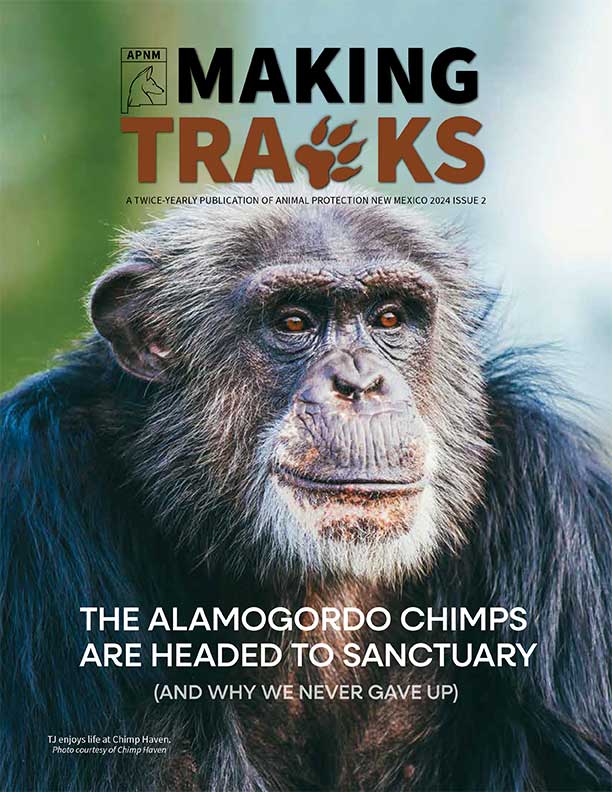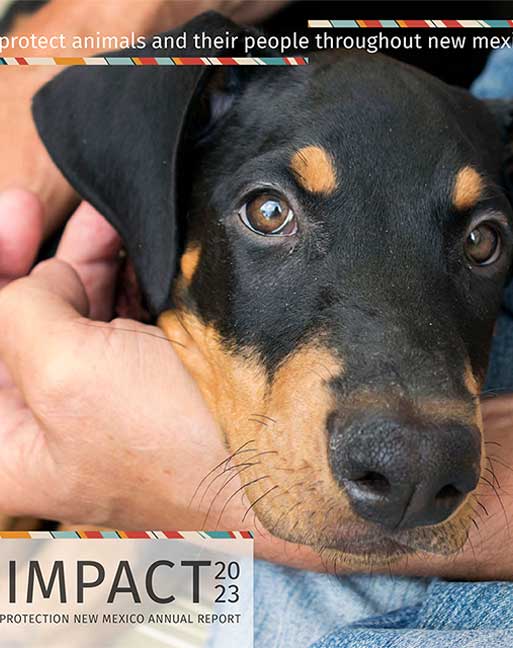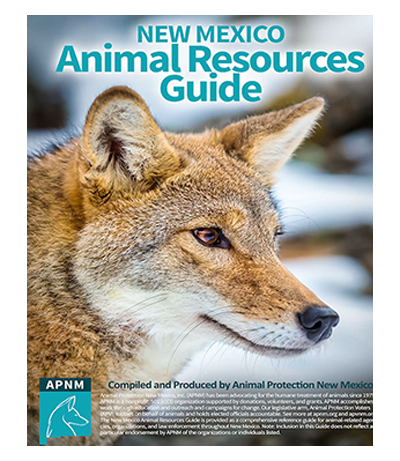Imagine finding yourself in a dangerous domestic violence situation and fearing for the safety of not only yourself but your companion animal as well. Domestic violence survivors frequently face this heartbreaking reality.
APNM’s CARE (Companion Animal Rescue Effort) Program Services seek to ensure that both humans and their companion animals find safety together. CARE Program Services provide a lifeline for domestic violence survivors and their companion animals by enabling companion animals to receive veterinary care and boarding while their humans seek safety and shelter. CARE has saved lives and met the needs of survivors, but we also recognize the importance of co-sheltering.
In 2023, we expanded our CARE Program Services to include a Co-Sheltering Initiative. Co-sheltering is a type of housing where domestic violence shelters house humans and their companion animals together. For survivors of domestic abuse, being able to keep their companion animals with them as they heal is crucial. According to the Urban Institute and the National Domestic Violence Hotline, 91% of respondents indicated that their companion animal’s emotional support and physical protection played a significant role in their ability to survive and heal. CARE Program Services now offer strategic support, training, and supplies to New Mexico domestic violence shelters that offer co-sheltering. We also assist in the building of capacity for those that wish to develop similar housing options for survivors.
Due to our persistent efforts, APNM is proud to report that 31% of domestic violence shelters in New Mexico provide co-sheltering practices, surpassing the national average of 17%.
Below are the eight New Mexico domestic violence shelters that house survivors and their companion animals together.
- Grammy’s House, Artesia
- The Nest, Ruidoso Downs
- COPE, Alamogordo
- Haven House, Rio Rancho
- Navajo United Methodist Center, Farmington
- Family Crisis Center, Farmington
- Roberta’s Place, Grants
- Roswell Refuge, Roswell
In addition, five domestic violence shelters offer partial co-sheltering services.
The importance of these domestic violence shelters cannot be overstated. In challenging times, these shelters allow survivors to keep their families together.
While New Mexico leads the nation in co-sheltering, we recognize that many of New Mexico’s domestic violence shelters do not have the resources and support to be able to transition to a co-sheltering model. CARE Program Services will continue to work with domestic violence shelters across the state to expand co-sheltering so that more humans and their companion animals can stay together in times of crisis.




